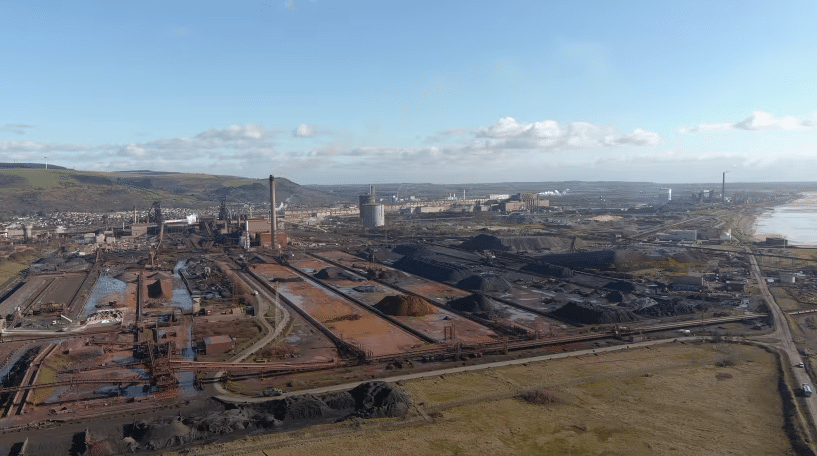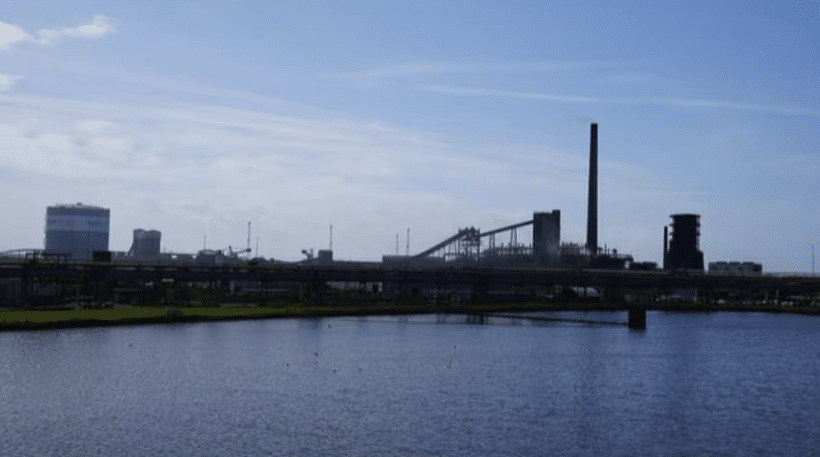The owners of the Port Talbot steelworks have rejected a trade union plan designed to keep its blast furnaces running leaving the UK on course to become the only major economy unable to make steel from scratch.
Roughly 2,800 jobs are to be axed at the country’s biggest steelworks. Tata said around 2,500 will be in the next 18 months. A further 300 jobs are to go in three years.
They added – statutory consultation on the cuts will begin, but did not specify when. Voluntary redundancies will be sought and more than £130m will be committed to a support package for affected employees.

It follows the announcement Tata will press ahead with plans to close blast furnaces and replace them with electric arc furnaces under a plan to reduce emissions and costs.
The first blast furnace will closing around mid-2024 and the remaining heavy end assets will wind down during the second half of the year, Tata announced on Friday.
It said the move will cut carbon emissions by about 85% and the UK’s overall CO2 output by about 1.5%. The Port Talbot site is the UK’s single largest emitter of CO2.
The new furnace will be powered by UK-sourced scrap as the raw materials.
The First Minister has called for an urgent meeting with Rishi Sunak about Tata Steel. The Welsh Government has said that Number 10 says the Prime Minister isn’t “available to take a call on Tata” amid up to 3,000 job losses and knock on effects.
Stephen Kinnock, the Labour MP whose Aberavon constituency includes Port Talbot, called on the government to “rethink their approach” and adopt union proposals for a staggered transition to electric arc furnaces, with jobs protected in the meantime.

TATA TIMELINE
Steelmaking at the Port Talbot complex began with the Margam Iron and Steel Works, completed between 1923 and 1926.
Port Talbot Steelworks is an integrated steel production plant in Port Talbot, capable of producing nearly 5 million tonnes of steel slab per annum. This makes it the larger of the two major steel plants in the United Kingdom and one of the largest in Europe. Over 4,000 people work at the plant.
An explosion at the Port Talbot plant in November 2001 killed three men. Len Radford, 53, Stephen Galsworthy, 25, and Andrew Hutin, 20, died when blast furnace five erupted, sending molten liquid down on them. Twelve other men were seriously injured in the blast. The blast heavily damaged No.5, which was rebuilt and resumed operation from 2003 onwards.
In July 2012 Tata Steel were fined £500,000 over the 2006 death of worker Kevin Downey at the Port Talbot plant. Engulfed in steam during a night shift, Downey wandered into a channel of molten slag heated to 1500 °C (2700°F). He was rescued by colleagues, but suffered 85% burns and died later that day. At the time of the accident, the Port Talbot plant was controlled by Corus Steel UK, and taken over by Tata in 2007.
Tata Steel announced on 30th March 2016 it may pull out of its UK operations, including Port Talbot. It provided as reasons “imports of Chinese steel, high energy costs and weak demand. Plans to save the steelworks were put on hold when potential buyers indicated their intention to withdraw from the bidding process due to the UK voting in favour of withdrawing from the EU”. However, the Brexit vote had the opposite effect with Tata Steel reconfirming commitment to the self-sustaining finance of its UK operations, while selling the EU – Netherlands operations. The UK Government said it “remains committed to supporting a sustainable, long-term future for steel making in the UK”.
In September 2023 the UK Government agreed to pay Tata a £500 million subsidy in order for it to invest in an electric arc furnace. This was in a bid to cut emissions due to the carbon-intensity of the current blast furnaces. Trade unions worried that the increased autonomy of the electric arc furnace would lead to job losses. Unions presented the firm with a plan to keep one of the two blast furnaces open until 2032 in order to minimise job losses. The firm rejected the plan, announcing in January 2024 that they would close both blast furnaces, putting 3,000 jobs at risk.
With Tata being the largest private employer in Port Talbot, concerns have been raised regarding the future economic health of the town.





